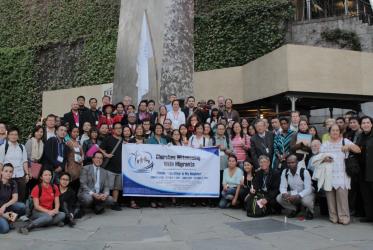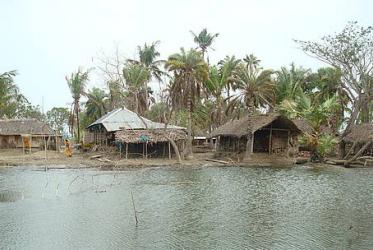Displaying 1 - 20 of 20
Pacific Theological College publishes “A COVID-19 Wellbeing Statement”
03 September 2021
Applications open for WCC Eco-School
22 October 2020
Churches should use their voice on climate change
26 February 2020
The cry of the Papuans in Indonesia
14 November 2019
In Fiji, young people ‘walk the talk’ with advocacy
12 September 2019
WCC condemns massacre of farmers in Philippines
12 April 2019
WCC supports UN petition from French Polynesia
07 November 2018
New videos help congregations hasten HIV response
20 October 2016
"I hit the ground running": Katalina Tahaafe-Williams
16 February 2016
Consultation considers right to food in context of climate change
15 December 2015
Land rights focus of panel discussion
17 November 2015
A humble man firmly rooted in faith
20 August 2015
Indigenous faith leaders reflect on resilience and climate change
23 September 2014
Churches advocate upholding human dignity of migrants
14 October 2013
















